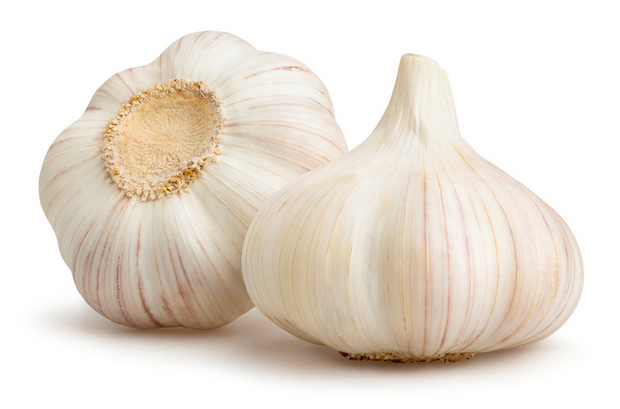
Myths and misinformation - Get it right!
AS the world continues to battle the new coronavirus, COVID-19, people are being exposed to myths and misinformation about the virus.
It is important to be abreast of the right information in order to reduce the risk of infection. Here are a few myths that have been debunked by the World Health Organisation (WHO) and other health experts.
Advertisement
Myth #1: COVID-19 only affects older people
Unfortunately, people of all ages can be infected by the new coronavirus. However, "older people, and people with pre-existing medical conditions (such as asthma, diabetes, heart disease) appear to be more vulnerable to become severely ill with the virus," the WHO points out.
Myth #2: COVID-19 targets specific races or ethnicities
COVID-19 does not target any specific race more than another. For example, being of Asian descent does not increase the chance of getting or spreading COVID-19.
Myth #3: Eating garlic can help prevent infection with COVID-19
Eating garlic won't protect you against COVID-19. Despite garlic being a healthy food and having some antimicrobial properties, according to the WHO, "there is no evidence" from the current outbreak that the potent herb will protect you from coronavirus.
Myth #4: Spraying alcohol or chlorine all over your body can kill COVID-19
While spraying alcohol and chlorine is a great method to disinfect surfaces— and even using an alcohol-based hand sanitiser can help keep your hands clean— using the chemicals all over your body isn't going to kill the virus if you've already been infected.
"Spraying such substances can be harmful to clothes or mucous membranes (i.e. eyes, mouth)," the WHO points out.
Myth #5 Heat, avoiding ice cream
According to the BBC, Charlotte Gornitzka, who works for UNICEF on coronavirus misinformation, says: "A recent erroneous online message purporting to be a UNICEF communication appears to indicate that avoiding ice cream and other cold foods can help prevent the onset of the disease. This is, of course, wholly untrue.
"We know the flu virus doesn't survive well outside the body during the summer, but we don't yet know how heat impacts the new coronavirus."
Trying to heat your body or expose yourself to the sun - presumably to make it inhospitable to the virus - is completely ineffective, according to Prof. Bloomfield. Once the virus is in your body, there is no way of killing it - your body just has to fight it off.
Outside the body, "to actively kill the virus you need temperatures of around 60 degrees [Celsius]", says Professor Bloomfield - far hotter than any bath.
Washing bed linen or towels at 60C is a good idea, as this can kill any viruses in the fabric. But it's not a good option for washing your skin and having a hot bath or drinking hot liquids won't change your actual body temperature, which remains stable unless you are already ill.
Myth #6: Hand dryers can kill COVID- 19
No. According to the WHO, hand dryers are not effective in killing the new coronavirus. Instead, the best way to protect yourself against COVID-19 is to wash your hands frequently (or clean them with an alcohol-based hand rub), then dry them thoroughly with paper towels or a warm air dryer.
Myth #7: Pneumonia vaccines can protect you against COVID-19
Currently, there is no vaccine to protect you against coronavirus— including pneumonia vaccines. "The virus is so new and different that it needs its own vaccine," the WHO explains. Researchers are trying to develop a vaccine against COVID-19 and WHO is supporting their efforts.
Myth #8: Pets can spread COVID-19
While pets can spread certain forms of coronavirus, the WHO confirms that presently, there is no evidence that your domesticated animals can be infected with or spread the new coronavirus.
"However, it is always a good idea to wash your hands with soap and water after contact with pets," according to the WHO. "This protects you against various common bacteria such as E.coli and Salmonella that can pass between pets and humans."
Myth #9: Antibiotics are effective in preventing, treating COVID-19 Keep in mind that antibiotics do not work against viruses of any kind — only bacteria. So, because the new coronavirus is an actual virus, "antibiotics should not be used as a means of prevention or treatment."
Myth #10: It isn't safe to receive a letter or a package from China
This simply isn't true, according to the WHO. "People receiving packages from China are not at risk of contracting the new coronavirus," they explain. "From previous analysis, we know coronaviruses do not survive long on objects, such as letters or packages."
Myth #11: Thermal scanners are effective in detecting people infected with COVID-19
This one's twofold: While thermal scanners can detect fevers (i.e. a higher than normal body temperatures) in those infected with the coronavirus, they cannot detect the infection in those who are not yet showing symptoms. "This is because it takes between two and 10 days before people who are infected become sick and develop a fever," the WHO explains.
Myth #12: Slathering yourself in sesame oil can block COVID-19 from entering the body
We're not entirely sure where this myth comes from, but rubbing sesame oil all over your body definitely won't keep the coronavirus away.
Myth #13: COVID-19 virus can be transmitted in areas with hot and humid climates
The WHO says COVID-19 virus can be transmitted in ALL AREAS, including areas with hot and humid weather. The WHO advises that regardless of climate, you adopt protective measures if you live in, or travel to an area reporting COVID- 19. The best way to protect yourself against COVID-19 is by frequently cleaning your hands. By doing this, you eliminate viruses that may be on your hands and avoid infection that could occur by touching your eyes, mouth and nose.



